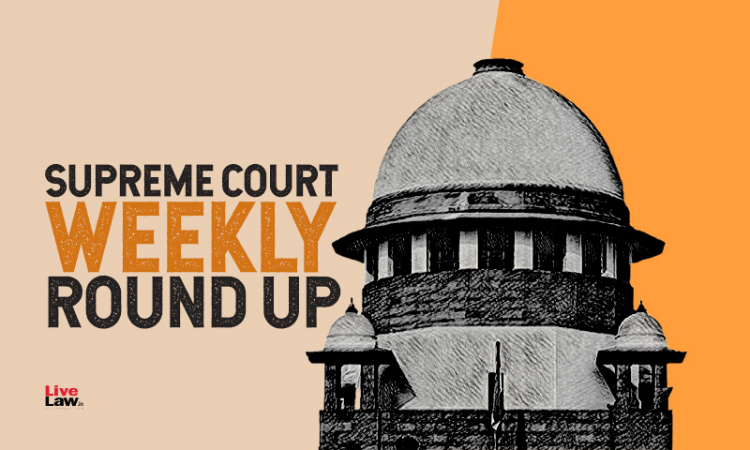Next Story
15 Aug 2021 9:16 PM IST
JUDGMENTS THIS WEEK1. Improper To Quash FIR U/s 482 CrPC When There Are Serious Triable Allegations In Complaint, Reiterates Supreme CourtCase: Kaptan Singh vs State of Uttar Pradesh; CrA 787 OF 2021Citation: LL 2021 SC 379The Supreme Court observed that it is improper to quash criminal proceedings under Section 482 of Criminal Procedure Code when there are serious triable allegations in...

